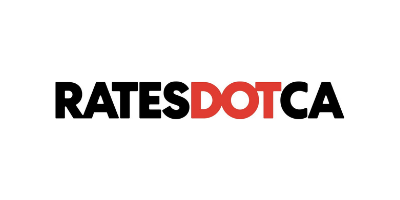Life is full of surprises, and sometimes those surprises are not so pleasant, especially when they compromise your financial health and that of your family. If you’re ever injured and are no longer able to work, it may be next to impossible to pay the bills.
And if you’re the breadwinner for your family and pass away while you still have dependents in the house, how will they keep up with mortgage payments and other financial obligations?
That’s why life insurance exists. With a policy in place, you and your family can rest easy knowing that all those bills that you still have coming in can be covered if the unthinkable occurs.
The thing is, there’s not just one type of life insurance. Instead, there are a few different types to choose from, such as universal life insurance. We all know what life insurance is, but what exactly is “universal” life insurance?
What Is Universal Life Insurance?
Universal life insurance is a flexible, guaranteed, lifelong policy that gives you and your family protection while also giving you the opportunity to build your wealth. In addition to the financial coverage provided, there is also a savings component to this type of policy.
You have the freedom to make premium payments that go toward providing a guaranteed death benefit for your beneficiaries, and any additional payments you make over the price of your policy can grow in a savings account. Or, you can use those extra payments to be put toward increasing the death benefit amount.
You can select your investments, and your gains can accumulate tax-free. Plus, you’re free to withdraw funds from your policy, with some tax implications.
Got a lot of debt? Find out what happens to your debt when you die?
How Does Universal Life Insurance Work?
Like any other life insurance policy, universal life insurance requires premiums to be paid for coverage. Once you’ve paid your required insurance premiums, any excess money contributed will be put towards the policy’s investment component. You can choose which investment vehicle to contribute to.
Any excess funds in your account can be withdrawn at any time to be used however you want, as long as there are adequate funds left over to cover the cost of your insurance policy. It should be noted, however, that funds withdrawn may be taxed.
You can choose the beneficiaries to your policy, who will receive the proceeds of your plan when you pass on.
Have you been thinking about creating a will? Check out our review on Willful; an online platform where you can create your will without a costly visit to a lawyer.
Pros And Cons Of Universal Life Insurance
Pros
- Lifetime protection. Your life insurance policy will remain in effect throughout your entire lifetime, as long as your premiums are paid.
- Savings component. Part of your premium will go into an investment account that earns interest to help you build wealth over time. And if you decide that you don’t want the policy in a few years, you can cash out because of the value that your policy holds.
- Flexibility. You are free to change your premium and coverage amount whenever you see fit to accommodate changes in your life.
- Tax perks. Interest earned on the cash portion on top of your insurance policy premiums and the death benefit will be paid out to your beneficiaries tax-free.
- No need to renew. Universal life insurance allows you to avoid having to deal with renewing term policies. Instead, you can stay with one policy throughout your life and take one more worry off your plate.
Cons
- Cost. Universal life insurance tends to be more expensive than a term life policy taken out early on in life. That said, it can end up being more cost-effective if you take a policy out when you’re older.
- Limited returns. Your insurance provider can limit the cash value returns or the amount that you can invest based on tax laws.
- Monitoring required. Like other investments, you’ll want to keep an eye on your investment with your policy to make sure its cash value doesn’t drop too much.
Types Of Universal Life Insurance
There are a few different versions of universal life insurance that you will want to look into before you take out a policy:
Non-Guaranteed (Traditional Or Indexed)
A traditional universal life insurance policy is a non-guaranteed product, which means your premiums and policy are tied to market performance. Like other investment types, there is risk involved with this type of investment, as your policy value will depend on how your chosen investments do.
Your investment will basically depend on how the market is doing. If the market is doing well, the cash value will increase; but if it goes down, you lose out. Plus, the rate you earn will be slightly lower than the index performance because the insurance company will take their hefty share.
Further, most life insurance providers sell these policies at the lowest allowable premium instead of insurance firms’ guideline premiums. This policy can also cost you a lot because it is non-guaranteed, which means there could be a time when you are not covered, or you may have tax consequences to pay if you cancel your policy. And there is the risk of your policy being dropped because it may not have enough cash value.
Guaranteed
These policies come with premiums that remain the same no matter how well the index that you invest in performs since interest rates are established right from the get-go. As long as you pay your premiums, you’ll always have coverage, which makes this version of universal life insurance less risky.
However, because your premiums are not adjusted based on market performance, the cash value may be lower because this policy is not designed to grow cash. Instead, it’s more focused on keeping up with insurance costs.
Variable
This type of universal life insurance gives you the opportunity to invest the cash value portion into a mutual fund. Your cash value makes up a part of the mutual funds and is invested in several companies at the same time. While investing is a great feature, life insurance is meant to protect your loved ones, and the higher fees that typically come with this type of policy can eat into your earnings.
How Much Does Universal Life Insurance Cost?
The cost of universal life insurance can range quite a bit depending on a number of factors, such as the following:
Age
The younger you are when you take out a policy, the lower your premiums will be. As you age, the cost increases because the chances of health issues creeping up increases.
Gender
Women tend to have a longer life expectancy, so their policy costs may be slightly lower compared to men.
Health History
Insurance providers may require a medical examination before they determine whether to approve you for a policy and how much to charge you for one. They will want to find out about what your previous health issues have been, if any, especially serious issues such as cancer or heart disease, which will increase your premiums.
Family Health History
Your insurer will also want to know about any family history of major diseases and ailments, such as those mentioned above, as your risk for developing them in the future are higher compared to those with no such family health history.
Job
Some jobs are more dangerous than others, which will usually translate into higher premiums.
Smoking
The health implications associated with smoking are well-known. If you are a smoker, odds are you will be charged a higher premium.
Lifestyle
Your participation in risky activities – such as car racing, skydiving, and others – may also mean higher premiums.
Policy
The exact policy that you apply for will also dictate how much your premiums will be. For instance, larger benefit amounts and longer terms will usually be more expensive than smaller amounts for shorter terms.
Life Insurance Providers in Canada
When Should You Get Universal Life Insurance?
The best time to take out any type of life insurance policy is when you are young and healthy. The cost will be significantly lower compared to applying when you are older or have developed some type of ailment.
That said, those who are a little older and may have some health issues should consider taking out a policy if they still have dependents relying on them to pay the bills. This is especially important if you still have a mortgage and have children living in the home with you.
In terms of universal life insurance, you may want to consider this if you have no other savings or wealth-building accounts on the go, as this type of policy has a savings and investing component to it. However, if you already have a retirement or savings account in place that is helping you grow your wealth at a healthy rate, then a traditional life insurance policy may be best.






